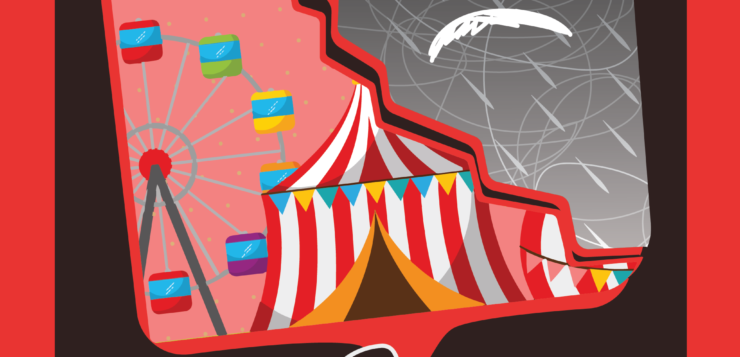There is a certain romanticised image portrayed when the phrase ‘year abroad’ enters your periphery, but the reality of partaking in such a thing isn’t always glamourous. It can be isolating at times, which can make the experience even more of a challenge as someone who has been recently diagnosed with anxiety and depression.
A modern languages degree is less flexible compared to other subject choices, in that the decision to spend a year abroad is solidified; a choice made before knowing what it is like to be a university student. Knowing what I know now, was my eighteen-year-old decision a wise one?
For a while, I pushed the idea out of my head. For over two years, the concept of a year abroad became buried amongst the chaos of a global pandemic, intertwined by a diagnosis that confirmed what I thought I always knew about myself. In fact, at no point did it feel real. That is, until the day I buckled myself into the plane that would fly me to a new country, to embark on a new chapter of my life.
I never really considered what it would mean to live abroad. Personally, I chose my degree as I loved learning languages; a practical skill that enables me to connect with other people on a deeper level. Despite the all-encompassing mental strength that is required for even the most basic of tasks, when required to speak another language abroad, the challenge has bought me out of my shell in ways I could never have before imagined. I have gone from being too anxious to order food in a restaurant, to confidently doing so in another language – this revelation in itself has made me realise my true capabilities.
Those at home are constantly encapsulated by the idea of ‘starting afresh’ in another country. There is this perception that doing a year abroad is to spend a year on holiday, with no attachment to the new country you find yourself in; a place to clear your head and ‘find yourself’. However, it is not a gap year and perceiving it as such diminishes the struggle and sacrifice required for a year abroad.
The truth is that living abroad makes you question everything you thought you once knew about yourself, and your own country, and consequently puts the world into perspective. It is not a task for the faint-hearted – the growth that takes place mentally to expand and adapt yourself in such a way is tiring and relentless. But equally, your values are no longer constrained by the narrow-minded view of one nation, and that opens up a scarily large array of endless possibility.
In a way, perhaps this does make the whole ‘starting afresh’ prophecy valid, especially when it comes to mentality.
However, amongst the process of enlightenment, you almost forget that you are successfully living in another country. There is no constant partying or going out: I have a job and a research project to contend with, alongside the exacerbated mental burden of being an adult, due to the language element. The stresses and strains of everyday life do not suddenly stop, just because I have decided to move to another country for a short period of time.
There have been several weeks of elation and enlightenment, which – alongside ongoing therapy sessions – have helped me to see life in a more positive light, one filled with excitement, and they have allowed me to recognise my flaws and work on them. Equally, there have been weeks of worry, and a craving for the aspects of my life, which I once knew and idolised.
Both mentalities I am just as grateful for. Both have shown me that I am more capable than I ever believed I could be. I have learnt to love myself unapologetically, my mental illnesses too. I departed from England in August of this year disassociated; numb; insecure. I was a shell of myself and unable to see life for what it really is. It wasn’t until I arrived home for Christmas last week that I was able to sit back and really look at my current life in motion, and feel proud for the internal struggles I am beginning to gain control of, and overcome.
To anyone in a similar position, contemplating whether they should let their diagnosis hold them back in doing a year abroad – I say fight back. Without the revelation this experience has given me, I would not be the person I am today, embarking on an experience, which is continually helping me to grow into the woman I have always wanted to become – independent, confident, and strongly fierce.
So, force yourself to fly high when you feel like flying low – you are most likely more capable than you are allowing yourself to believe.




